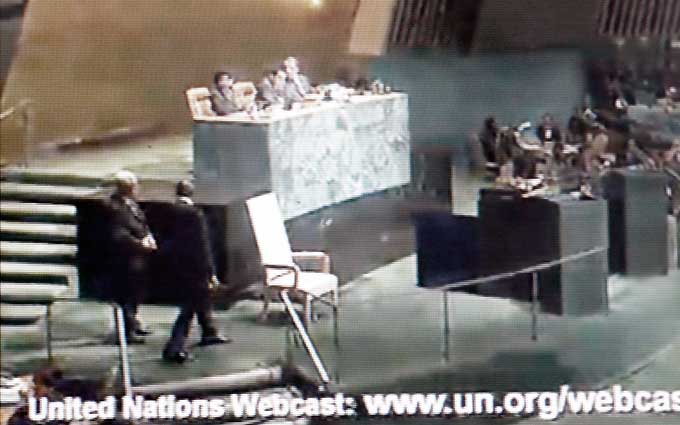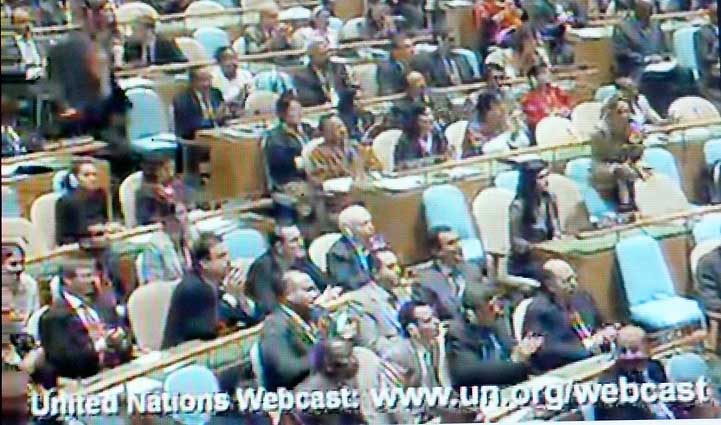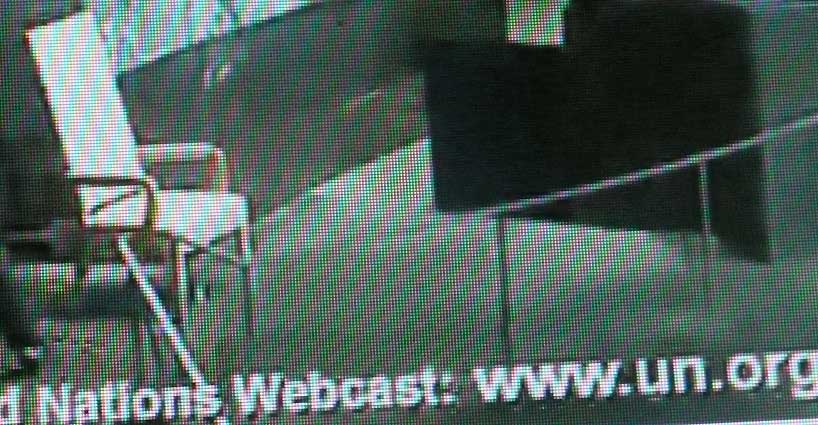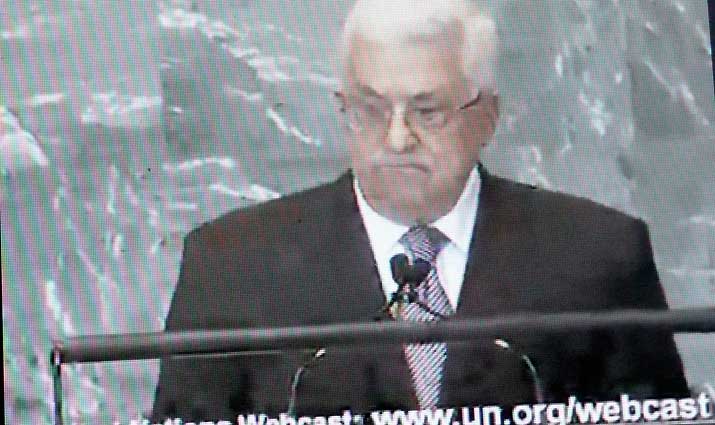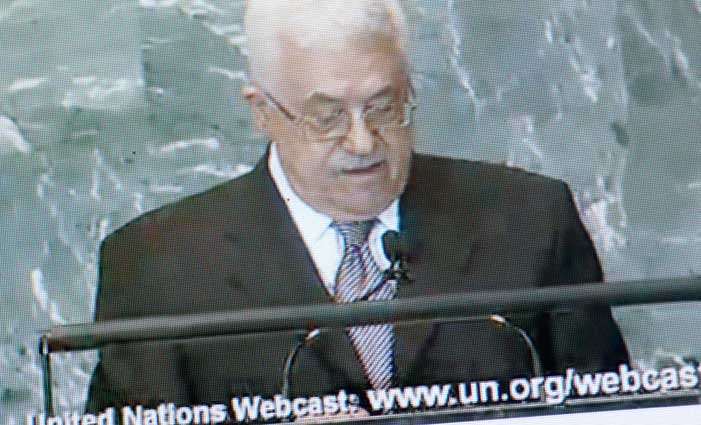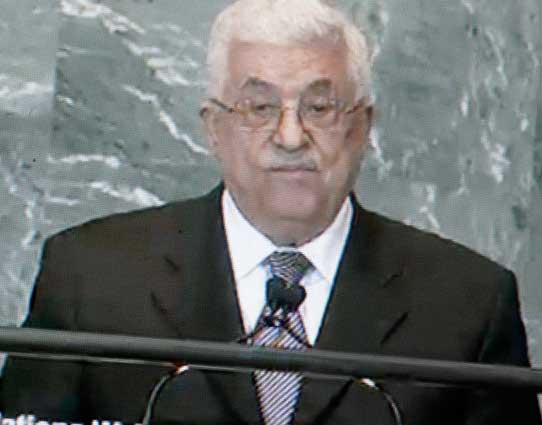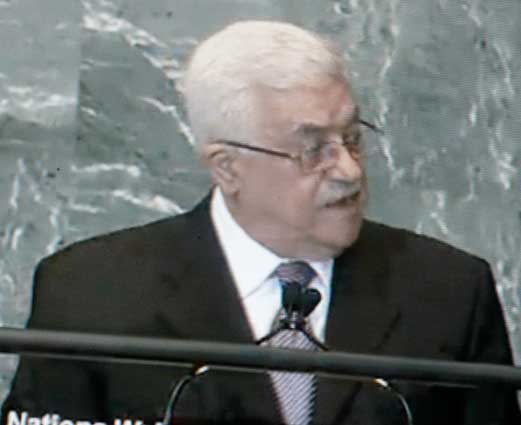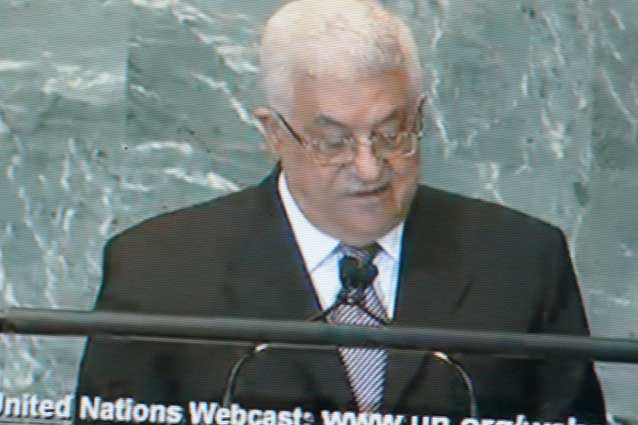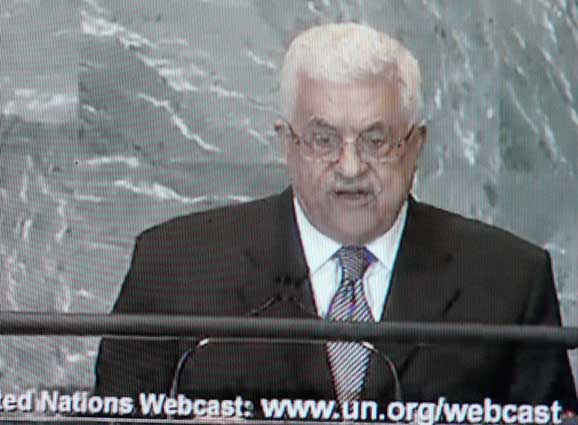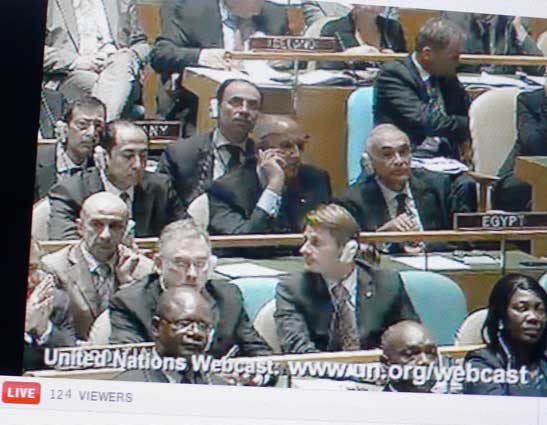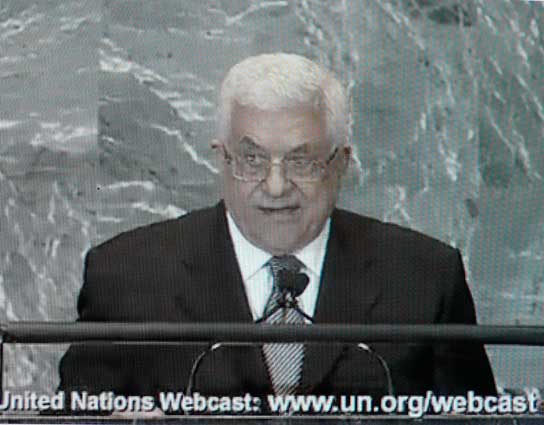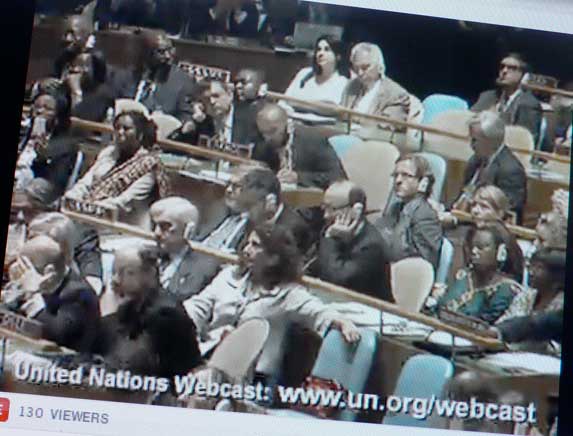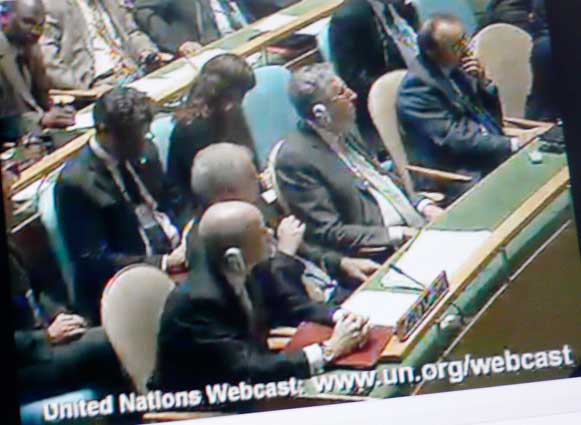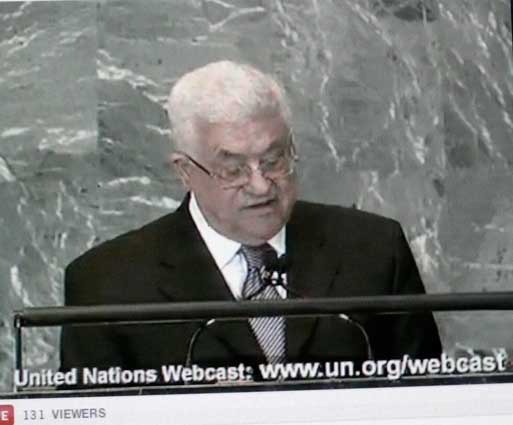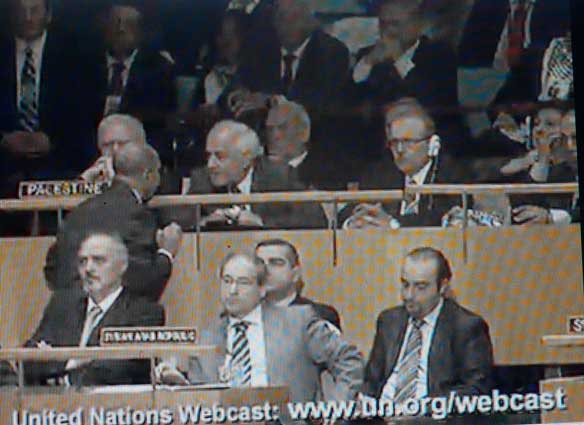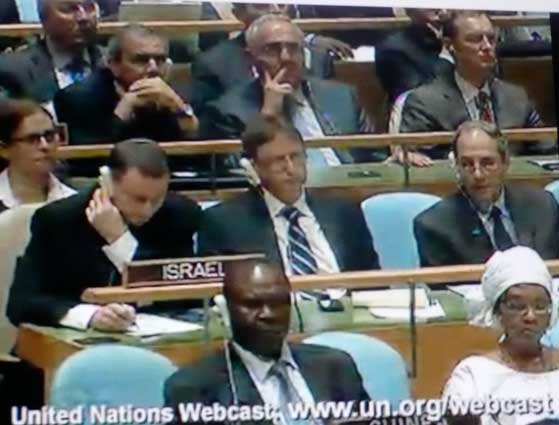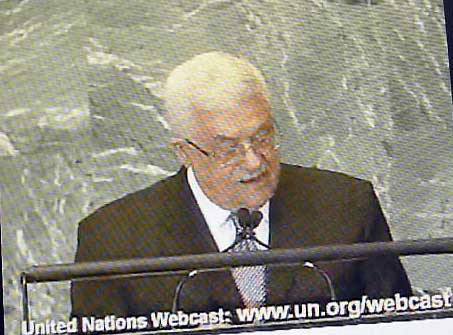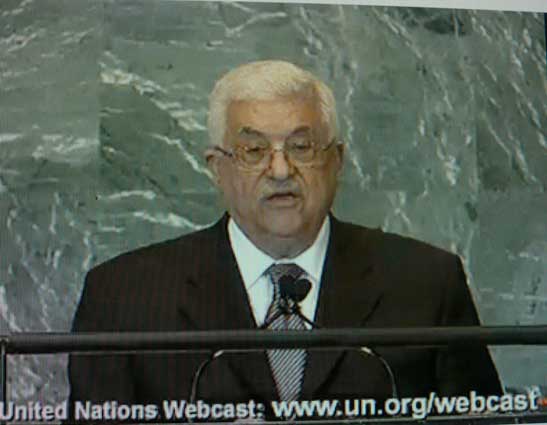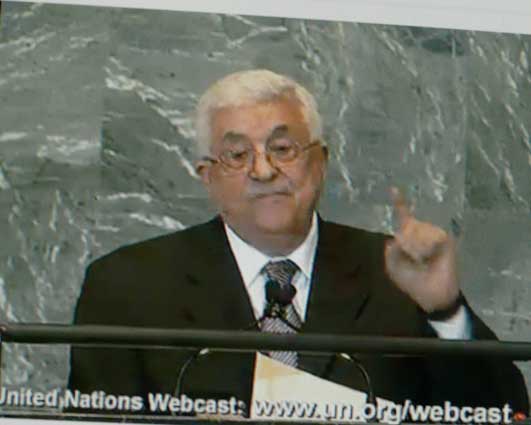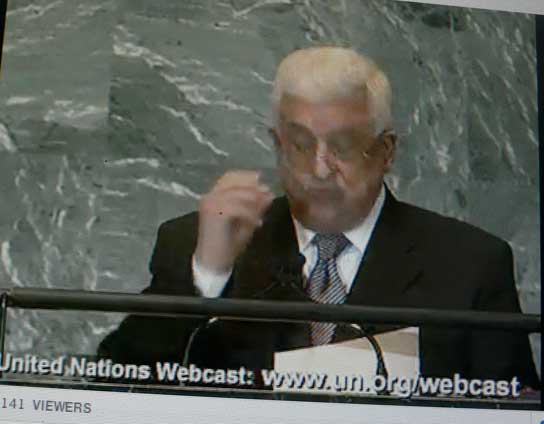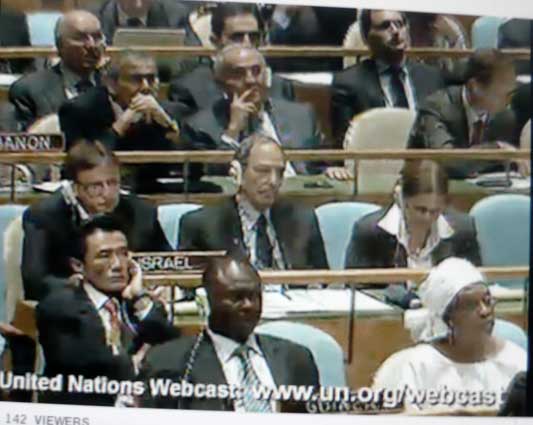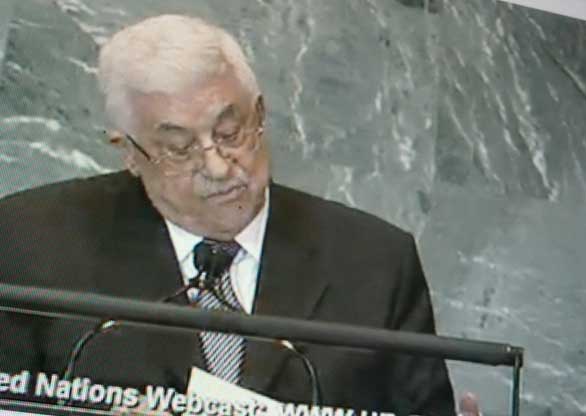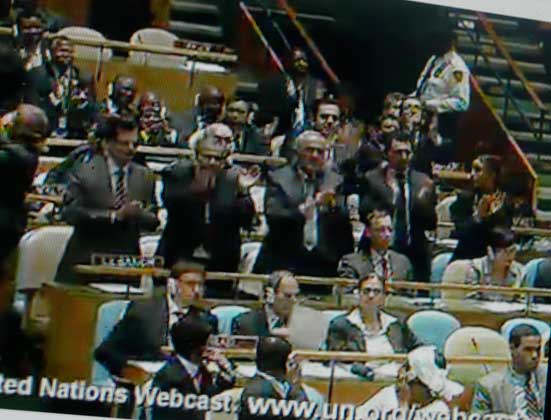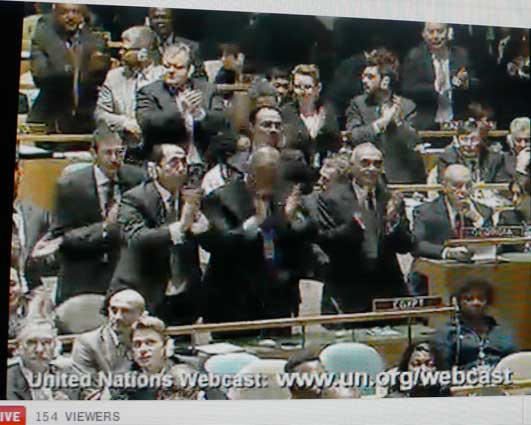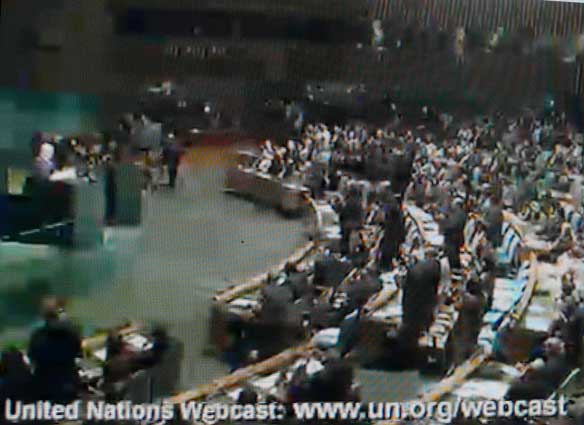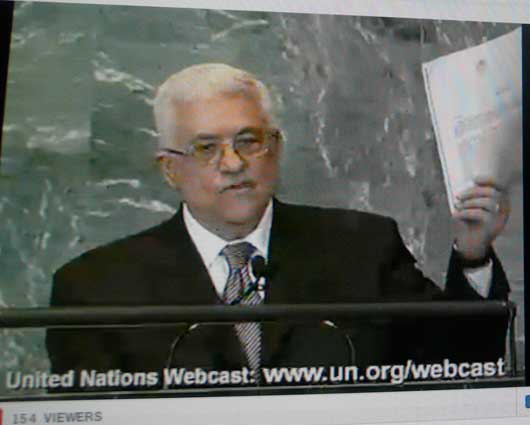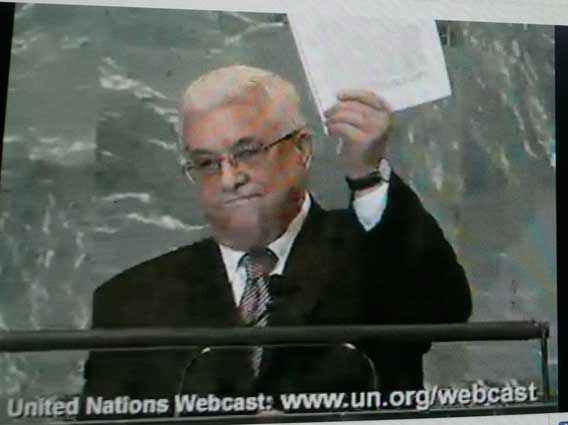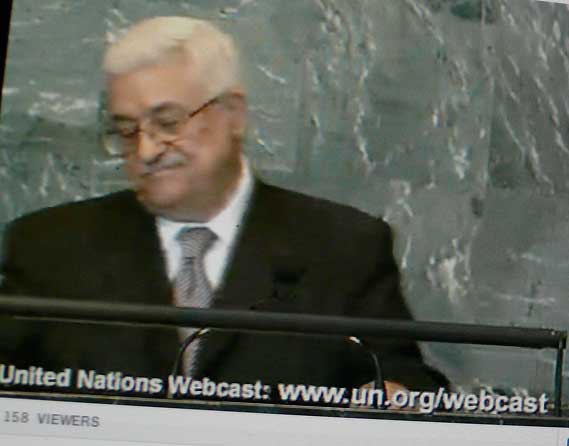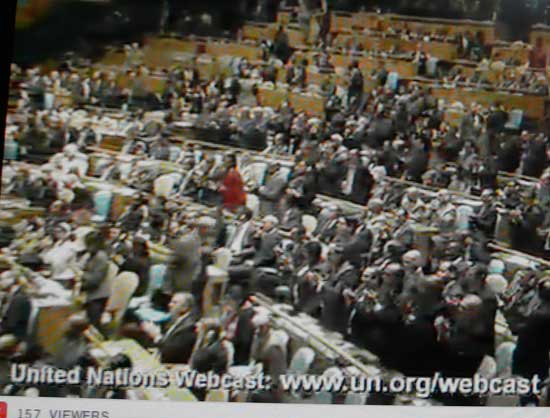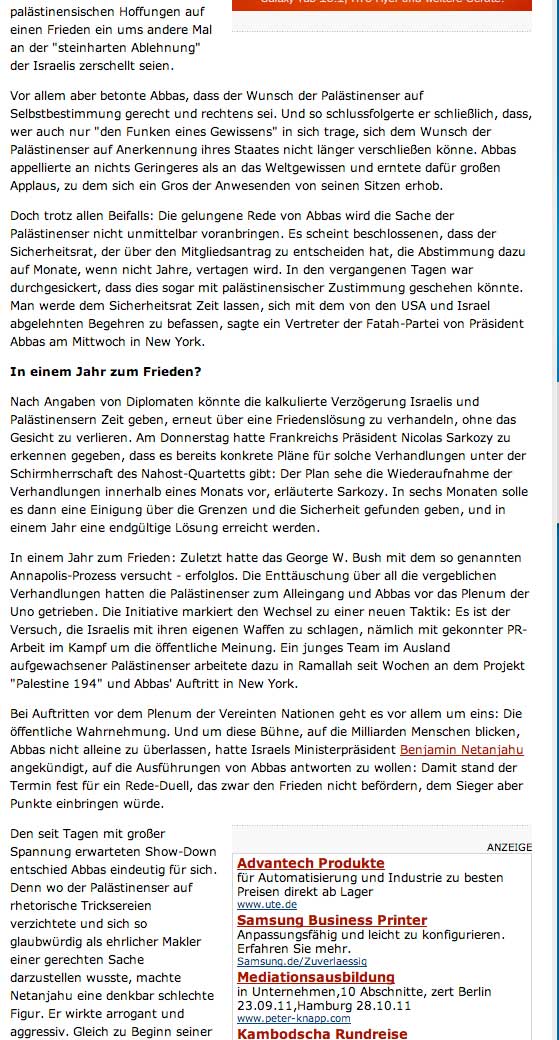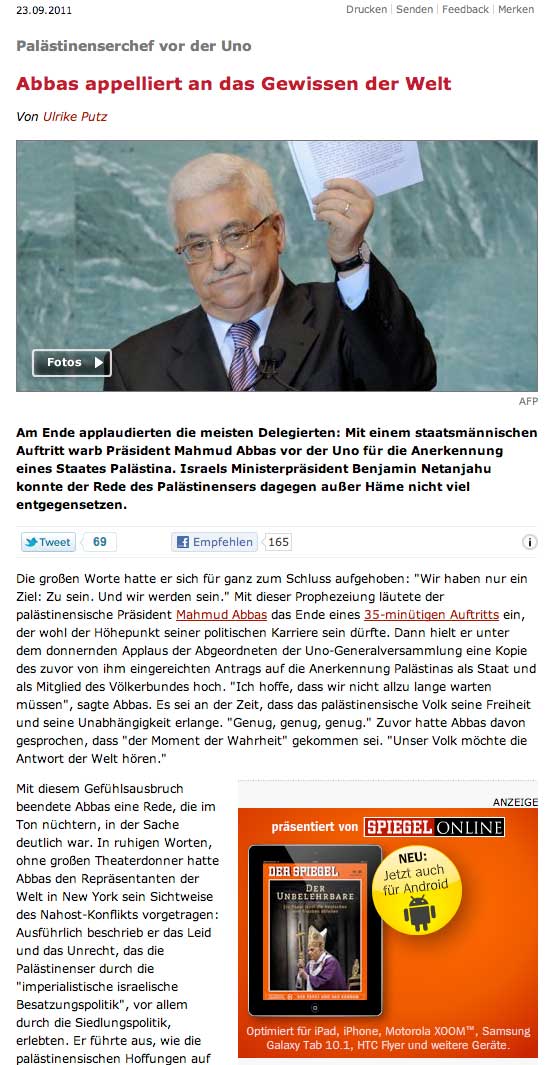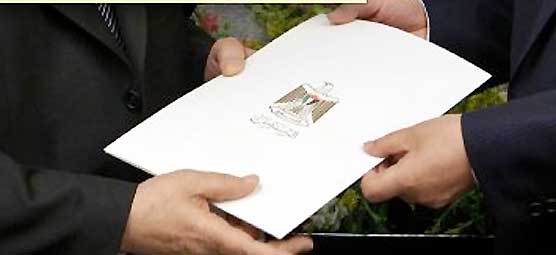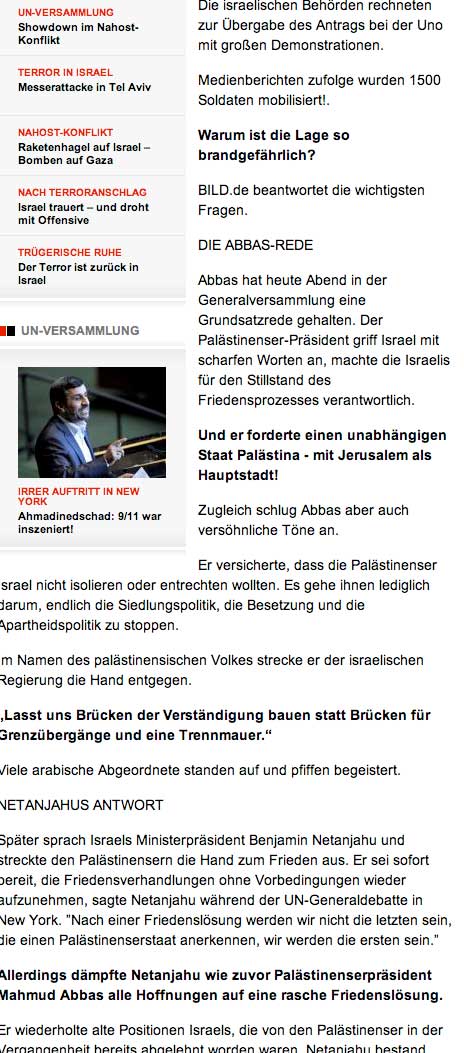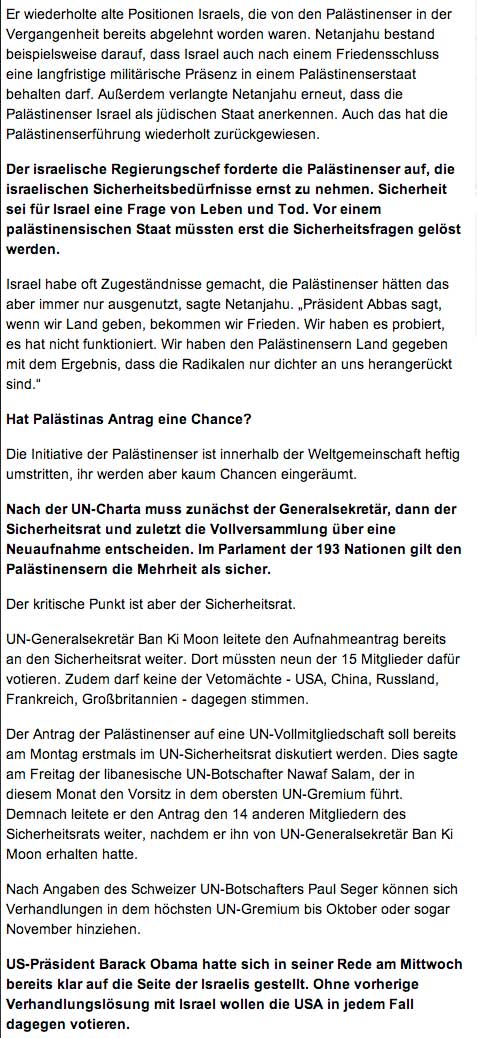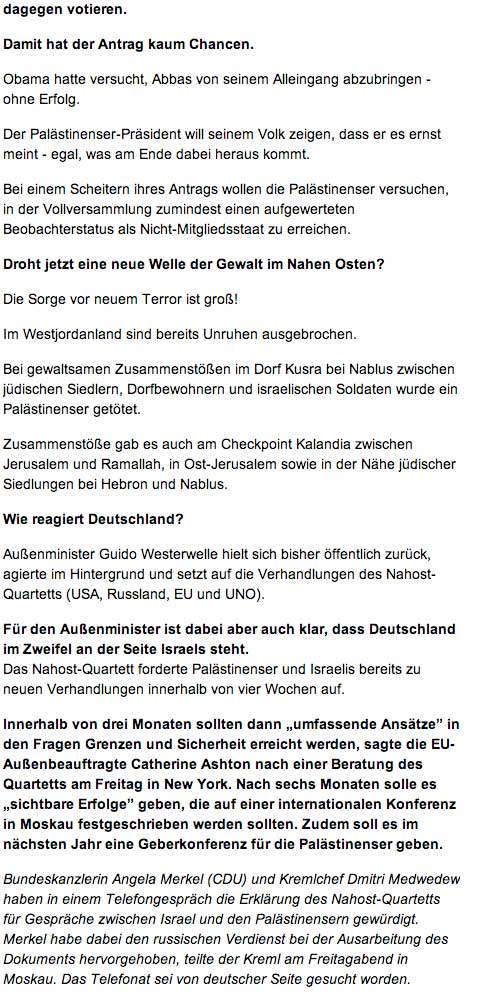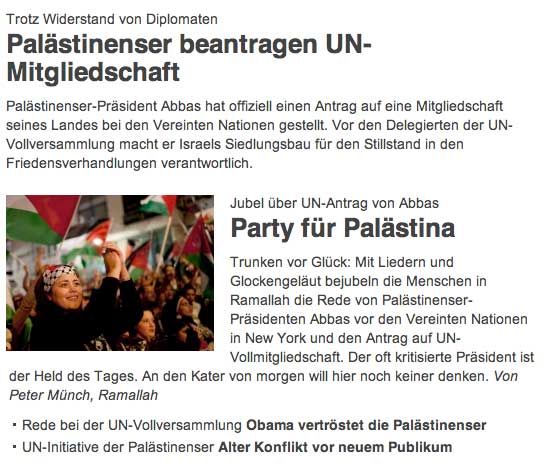Sonnabend, den 24. September
Aus der UN, livestreame Abbas
Bild-Zeitung
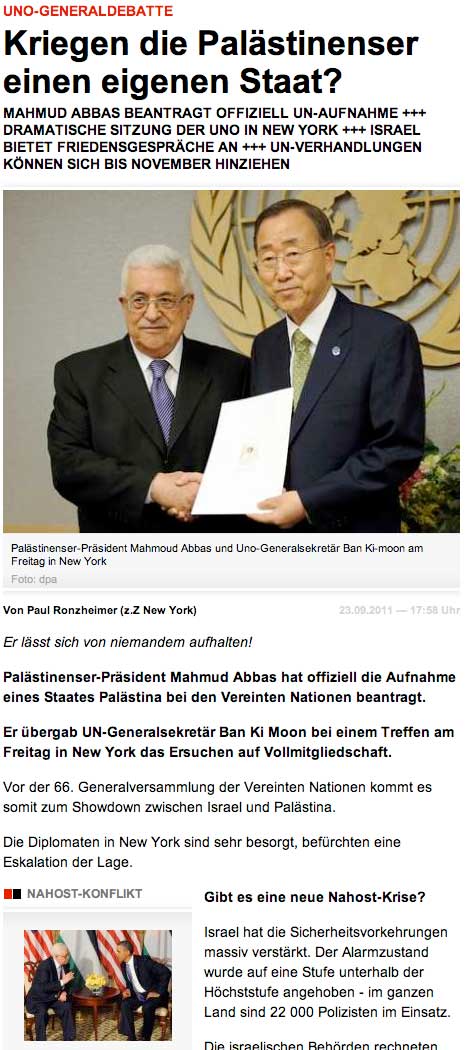
DER SPIEGEL
Morgen Netanjahu
aktualisiert /Kommentar>
faz

Haaretz
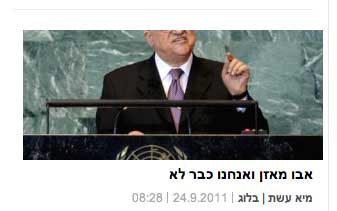
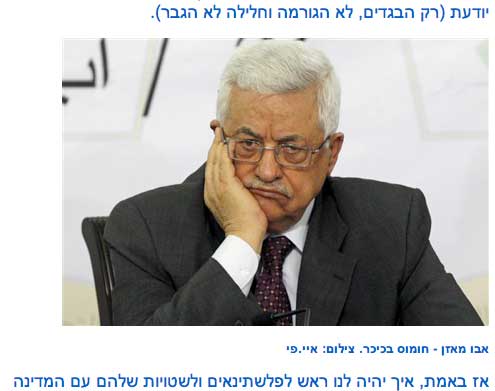


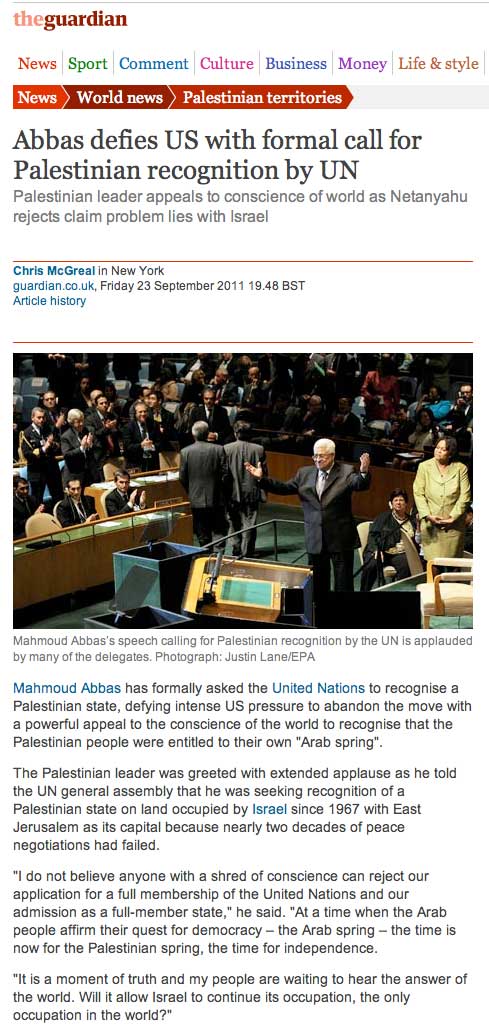
The Israeli prime minister, Binyamin Netanyahu, responded in an uncompromising speech to the UN by saying he was seeking a "just and lasting peace" with the Palestinians but would not jeopardise the Jewish state's security. "The Palestinians should first make peace with Israel and then get their state," he said.
He attacked the UN as a "theatre of the absurd", unfit to decide on whether there should be a Palestinian state.
"Hezbollah-controlled Lebanon chairs the UN security council. A terror organisation presides over the body entrusted with world security. You couldn't make this stuff up," he said.
Abbas submitted the request for UN recognition to the secretary general, Ban Ki-moon, shortly before his speech. The security council is unlikely to act soon, in part because the Palestinian leader has privately agreed for a vote to be deferred while fresh attempts are made to revive the peace process. Washington has said it will veto the request.
Abbas said he had come to the UN because the existing American-dominated peace process to end the "colonial military occupation" had failed and a new approach was required. "It is neither possible, nor practical, nor acceptable to return to conducting business as usual, as if everything is fine," he said.
His determination to press ahead with an attempt to win recognition of an independent Palestine in the face of strong US opposition has prompted the most serious attempt to revive the peace process in years as Washington, London and Paris sought to avoid a showdown in the security council that could compromise their efforts to forge relations with the new governments emerging from the revolutions of the Arab spring.
Days of diplomatic wrangling ended in a compromise that has created a small window of opportunity, with a security council vote effectively put on the slow track, to get new peace talks off the ground.
The Middle East Quartet of the UN, EU, US and Russia responded with a proposal for talks intended to reach a framework agreement by the end of next year. The French president, Nicolas Sarkozy, proposed talks within a year-long timetable.
Tony Blair, the Quartet envoy, said the proposal was a substantial change from previous plans because it required two major issues Ð borders and security Ð be addressed immediately with each side's comprehensive proposals to be submitted within three months.
That met Abbas's demand in his speech that future negotiations must have "clear parameters" and a specific timetable to prevent Israel dragging them out. But the Quartet proposal failed to address his call for an immediate halt to settlement construction nor Israel's call for recognition as a Jewish state.
It is unclear whether the proposal meets Abbas's call for a break with the tried and failed framework of negotiations Ð with Washington holding a grip on mediation Ð particularly since what was seen as a partisan pro-Israel speech by Barack Obama to the UN on Wednesday. Sarkozy also said American oversight of negotiations had failed and called for a greater role for the Europeans and Arab countries which have made peace with Israel.
Abbas said previous Palestinian efforts to reach an agreement had been "repeatedly smashed against the rock of the positions of the Israeli government". In particular, he blamed the continued construction of Jewish settlements which have doubled in size since the 1993 Oslo peace accords.
"The occupation is racing against time to redraw the borders on our land according to what it wants and to impose a fait accompli on the ground that changes the realities and that is undermining the realistic potential for the existence of the State of Palestine," he said
"This policy will destroy the chances of achieving a two-state solution upon which there is international consensus [and] threatens to also undermine the structures of the Palestinian Authority and even end its existence."
Netanyahu said the Palestinians were in conflict with Israel long before settlement construction began in 1967.
"The core of the conflict is not the settlements. The settlements are a result of the conflict," he said. "The core of the conflict has always been, and unfortunately remains, the refusal of the Palestinians to recognise a Jewish state in any border."
The Israeli prime minister rejected Abbas's assertion that the problem lies with the Jewish state. He said Israel had made sweeping peace offers in the past met with rejection and terrorist attacks by the Palestinians. He said that Israel's withdrawal from Gaza, and the closure of its settlements there, had brought not peace but war.
Netanyahu ridiculed Abbas's talk of Palestinian "hopes and dreams". "Yes, hopes and dreams and missiles," he said.
